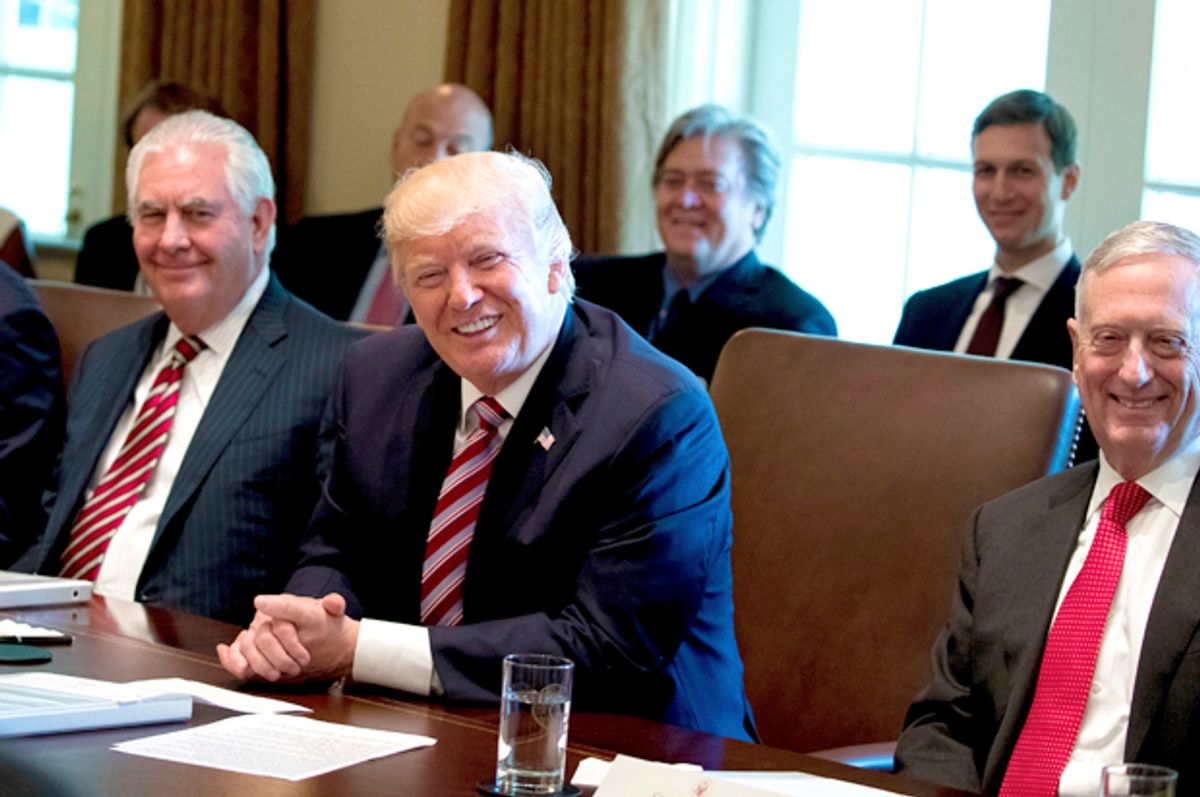Several months into the administration of Donald Trump, his communications team began trying to become more interested in trying to steer the news cycle by creating a theme of the week. Despite their best efforts, however, the practice hasn't really worked out, largely thanks to Trump's propensity to say incriminating things. But that hasn't been the only reason why its plans haven't come to fruition.
This week was supposed to be "made in America week." Unfortunately, the festivities were ruined by the president's own Mar-a-Lago golf club applying for 70 visas from the government to bring in foreign workers.
Even any negative publicity of the president's business life would be a positive step for the administration. This week was marked by Trump threatening to fire the special prosecutor in charge of investigating any potential ties between Trump and Russia, saying he was disappointed in his attorney general for not recusing himself, and, on Friday, a massive restructuring of the White House communications team.
This week wasn't an aberration, though. Like a bad sitcom plot, every time the White House has tried to build a theme week, the president has undermined it.
The White House's first attempt at message control was its declaration that the week of June 4 was going to be "infrastructure week." The idea seemed to be to present a Republican plan for improving the nation's infrastructure needs. Unfortunately, the administration did not have much of an actual plan when the week began beyond trying to privatize America's air traffic control system.
“We absolutely do feel that the infrastructure package can be accomplished this year,” an administration official said on a call with reporters the Friday before. “We are working every day to that end.”
Democrats didn't take kindly to the privatization idea, even rural Republicans spoke out against it. Neither party ended up particularly impressed with the barebones infrastructure ideas that did eventually emerge from the White House, largely because of how generic they ended up being, but also because, in the case of Democrats, that they seemed to be tax cuts rather than new spending.
Infrastructure week was also overshadowed by Trump's propensity to pick fights in his speeches and on Twitter. Instead of trying to build support for improving roads and bridges, the president took a swipe at Democrats on healthcare. He also decided to lash out at London's mayor based on an out-of-context quote.
Infrastructure week was completely destroyed on Thursday when James Comey, the FBI director whom Trump had just fired testified before Congress about how the president had asked him to taper back an aspect of the agency's investigation.
With infrastructure week botched, the White House then decided to focus on "workforce development." But what was supposed to be a week devoted to discussing the administration's new idea for apprenticeships ended up being a week devoted to coverage of Comey's testimony and a series of whiny tweets from the president about a contemporary rendition of "Julius Caesar" which featured the president in the titular role, a common theatrical practice. Trump capped off the week by lashing out at his own Department of Justice.
The president likewise ruined "technology week" by admitting that he had lied about making a secret recording of his meetings with Comey before firing him. "Energy week" ended up being "low energy week" as the administration didn't hold any events themed to the subject area.
Despite their plans not working out, however, the White House is vowing to continue its plans. Next week is supposed to be "American Heroes Week," followed by "American Dreams Week."
Notably, the Trump administration has yet to hold a "Health Care Week," one of many indicators that the president doesn't know or care much about the issue.



Shares